You are here
The guide was written by Fergus Butler-Gallie, a 25-year-old first-year ordinand at Westcott House theological college in Cambridge, and commissioned by the Prayer Book Society, which promotes the Book of Common Prayer.
Cranmer wrote the book when he was Archbishop of Canterbury. It was first published in 1549 in the reign of Edward VI, after his father, Henry VIII, broke with Rome.
Read more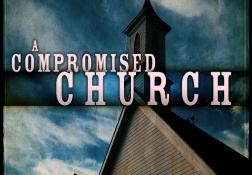 October 11 2017
THE COMPROMISING CHURCH (Part 1)
October 11 2017
THE COMPROMISING CHURCH (Part 1)
The cause of truth will always excite conflict. Our world, our race, natural religion in all its forms, is at implacable enmity with God. The word of God is militant toward evil and arouses an angry backlash. The meddling and mischief of the archenemy of the Lord, whose malice and violence, physical, mental, and spiritual is great, unrelenting, and furious, rendered the 16th and 17th centuries a time of turmoil and tempest.
Read more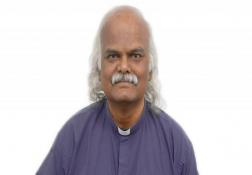 October 11 2017
The caterpillar is not given the glory but the butterfly
October 11 2017
The caterpillar is not given the glory but the butterfly
The section on 'Thanksgiving' in the Liturgy begins from 1948, the year the first CSI Synod met as if to suggest the first meeting of the Synod marked the day of the birth of the CSI and that God began to guide CSI from that year onwards. The Liturgy has strung together the conference themes of each biennium from 1948-2017 to suggest they provided the inspiration for the church over the 70 years. Our inspiration and directives do not derive from our Synod Conference themes.
Read more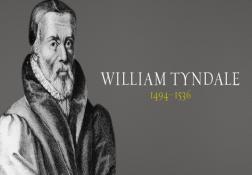 October 02 2017
Statues of Liberty: Rev Jules Gomes nominates William Tyndale, great reformer who translated the Bible and created modern English
October 02 2017
Statues of Liberty: Rev Jules Gomes nominates William Tyndale, great reformer who translated the Bible and created modern English
You don't expect statues to sway your emotions (unless sculpted by Bernini), but I was deeply moved by the statue of William Wilberforce, at the entrance to St John's College Chapel. The figures of Francis Bacon, father of the scientific method, who believed that God had revealed himself through two books -- nature and Scripture -- surrounded by Isaac Barrow and Isaac Newton at the entrance to Trinity College Chapel, remain forever etched on my memory.
Read more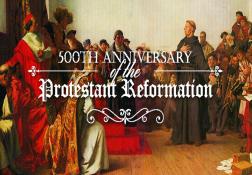 September 12 2017
Leading Protestant theologians offer a new confession on Reformation's 500th anniversary
September 12 2017
Leading Protestant theologians offer a new confession on Reformation's 500th anniversary
"This confession is not a charter for a new church but a tactical commemoration of the unitive Protestantism that characterized the Reformation at its best, a concrete witness to the fact that the theological truths that unite us are deeper and stronger than the doctrines that distinguish us," said Kevin Vanhoozer, research professor of systematic theology at Trinity Evangelical Divinity School and co-chair of the confession drafting committee.
Read more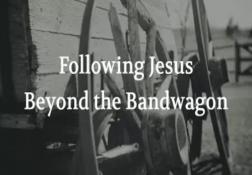 September 12 2017
THE GLORY BANDWAGON
September 12 2017
THE GLORY BANDWAGON
Few will subscribe in a hearty and full-blooded way to John Wycliffe's definition of the church, namely, "the whole number of the predestined". That is the truest description of the church and the elect of God mingle with and circulate among the vast crowd that considers itself to constitute the dubious phenomenon identified as Christendom for all sorts of reasons apart from the Gospel (historical, ethnic, political, cultural).
Read more September 02 2017
EVERYTHING IS GRACE - EVERYTHING IS CHRIST
September 02 2017
EVERYTHING IS GRACE - EVERYTHING IS CHRIST
We are inveterate boasters and habitual boosters of our ego. We may not be noticeably vocal or given to parading ourselves but we console our sense of entitlement to superiority and worth by pampering the soul with whispers of encouragement. Life is literally a matter of "one man over against another" as Paul observes 1 Corinthians 4:6). Human existence is highly competitive rather than genuinely co-operative.
Read more August 31 2017
Whatever Happened to God the Father?
August 31 2017
Whatever Happened to God the Father?
In the evangelical world since World War II, Jesus has been the focus of most thinking and worship. There were good reasons for this. Liberal theology in the 20th century had reduced the gospel to the fatherhood of God, the brotherhood of man, and social ethics. Salvation, liberals implied, was the reward for being a nice person.
Evangelicals were right to say, No, the gospel is about Jesus and the cross. They were partly right.
Read more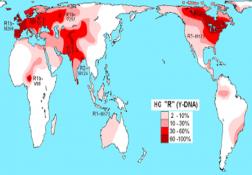 August 30 2017
The Historical Adam
August 30 2017
The Historical Adam
Were Adam the first created human, he would have lived about 3 million years ago. Clearly, this is not the meaning intended by the writer of Genesis because Adam's royal descendants tilled the ground, created musical instruments, herded sheep and cattle, offered animal sacrifice, and built cities (Genesis 4). These are the activities of people in the Neolithic Period (10,000 - 2000 BC).
Read more August 21 2017
COLOSSI OF THE CHURCH CALENDAR
August 21 2017
COLOSSI OF THE CHURCH CALENDAR
These men of great intellect were great not only of mind but of soul; not only of head but of tender, teachable heart. They amassed much knowledge and wielded enormous expertise in the science of theology but they also thrived on a deep personal knowledge of God Himself. Grace restrained their hubris. Their studies made them learned, their familiarity with Scripture made them wise, their communion with the Lord made them eloquent, their self-knowledge made them humble.
Read more


